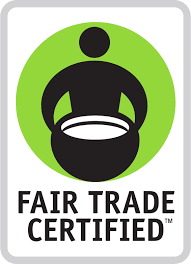March 18, 2019
By: Carl Jorgensen
At Fair Trade USA’s annual gathering in Chicago this year, we had the opportunity to meet people from all over the U.S. and the world who see themselves as part of a movement to ensure that both people and the environment are treated fairly in the process of producing and trading food and fiber. Now more than 1,250 businesses are members of Fair Trade USA, carrying the seal on their products.
The consumer who cares about the issues addressed by Fair Trade is a valuable consumer, trending younger and more affluent. They are often described as “conscious consumers.” If your brand seeks purpose-driven consumers willing to pay a modest premium to positively impact the world through their spending, aligning your brand with Fair Trade places you squarely within their value system.
WHICH CONSUMERS VALUE FAIR TRADE?
According to on-going market monitoring, 13% of Americans report fair trade as an important factor when choosing which foods to eat (Free From Forum Market Monitor, 2018). The consumers who value fair trade:
- Have a higher income than the representative population, skewing over $70K
- Are significantly more likely to live in the Western region.
- Are more likely to be Millennial
- Are significantly more likely than the representative population to seek out foods that are all natural, organic, locally grown, sustainable, and plant-based.
PRIMED FOR GROWTH
Although 13% of consumers considering fair trade important may seem low, we believe it’s an important idea primed to catch on more broadly. In our Fair Trade Pulse Survey, a separate study of 220 nationally representative Americans conducted in February of this year, we saw that 7 in 10 (72%) were motivated to seek out fair trade goods when the overall goal of fair trade was described. That’s because the planks of fair trade align with what conscious consumers are seeking – to make a difference in the world by supporting companies that are creating positive change.
“Our planet is in immediate danger and I want to do all that I can do to protect it and the people on it.” — Survey Respondent
WHAT IS FAIR TRADE?
Here’s how we described Fair Trade to our survey participants, incorporating language from the fairtradecertified.org website: “A choice for Fair Trade Certified goods is a choice to support responsible companies, empower farmers, workers, and fishermen, and protect the environment. Fair Trade requires rigorous protection of local ecosystems and ensures farmers work in safe conditions and receive a fair harvest price.
Specifically, Fair Trade seeks to create:
- Income sustainability – to ensure that producers, workers, farmers, and fishermen earn the money needed to fulfill basic household needs.
- Empowerment –to give farmers, workers, and fishermen a voice in the workplace and the community, regardless of gender, status, position in society, or position on the globe.
- Individual and community well-being – Under Fair Trade, committees of farmers, workers, and fishermen decide how to invest the Fair Trade Premium based on their community’s greatest needs: often clean water, education, and healthcare.
- Environmental stewardship – to keep the planet healthy for generations to come by prohibiting the most harmful chemicals and taking measures to protect natural resources.”

WHICH MESSAGES RESONATE MOST FOR YOUR BRAND’S FAIR TRADE STORY?
We found that consumers rank the overall welfare of others the highest with 63% resonating with individual and community well-being. Right behind this is income sustainability (59%) and environmental stewardship (53%), indicating people are readily accepting of the notion that Fair Trade can help both people and the planet. As one of the survey respondents shared, “Supporting responsible companies and empowering farmers, workers and fishermen and protecting the environment are important to me.”
The more your brands reflects these Fair Trade values, the more resonant it is with these valuable customers. Brian Durkee, President of Numi Organic Tea, one of the Fair Trade conference sponsors, explained it this way:
“Since the beginning, we have been committed to upholding strong values through the ingredients we source, the partners we purchase from and the treatment of workers throughout the supply chain. Customers can see where their tea is coming from and how their support of Numi positively impacts the world.” — Brian Durkee, President Numi Organic
WHERE TO BEGIN?
The conscious consumer looks beyond purely transactional, price-driven purchasing and considers the global social and environmental impacts of product choices. This consumer is generally aligned with the principles of sustainability and those who prioritize sustainability are 3.2 times more likely than average to also prioritize Fair Trade.
Consumers who prioritize sustainability are loyal to brands that authentically employ sustainable practices in their supply chain. We believe that many brands that have or wish to adopt sustainable practices may further benefit by adopting fair trade practices – in essence, the human side of sustainability, which can be developed through long-term partnerships with producers.
Speaking at the Fair Trade conference, Colectivo Coffee’s Vice President Ted Liu explained that most of their supplier relationships are many years old, enabling them to specify the quality of the products and make sure that the benefits of Fair Trade are improving the lives of the workers and their communities. For example, Colectivo’s history with the Kulaktik cooperative in Chiapas, Mexico dates back to 1998. Through its long-term Fair Trade partnership with Colectivo, the cooperative was able to break away from years of dependence on outside organizations. Kulaktik (meaning “vine” in the Mayan language Tzeltal), now carries its own export license and has the freedom to focus on quality improvements.
The social impacts of Fair Trade are good for brands. Writing recently in Fast Company, Phillip Haid, CEO of brand consultancy Public, said, “Social impact helps drive sales, attract and retain customers, builds a thriving corporate culture, and helps protect brands in fluid and confusing times.”*

Carl Jorgensen is the EVP, Managing Director of the Free From Forum at Linkage Research & Consulting, Inc. The Free From Forum, helps companies drive growth through deep understanding of the free from marketplace, trends, and consumer needs. For more insights, contact Carl at carl@linkageresearch.com or visit https://linkageresearch.com/free-from-forum/
* Why CEOs are still missing the point on social impact. By Phillip Haid, Fast Company, March 15, 2019.

 2019
2019